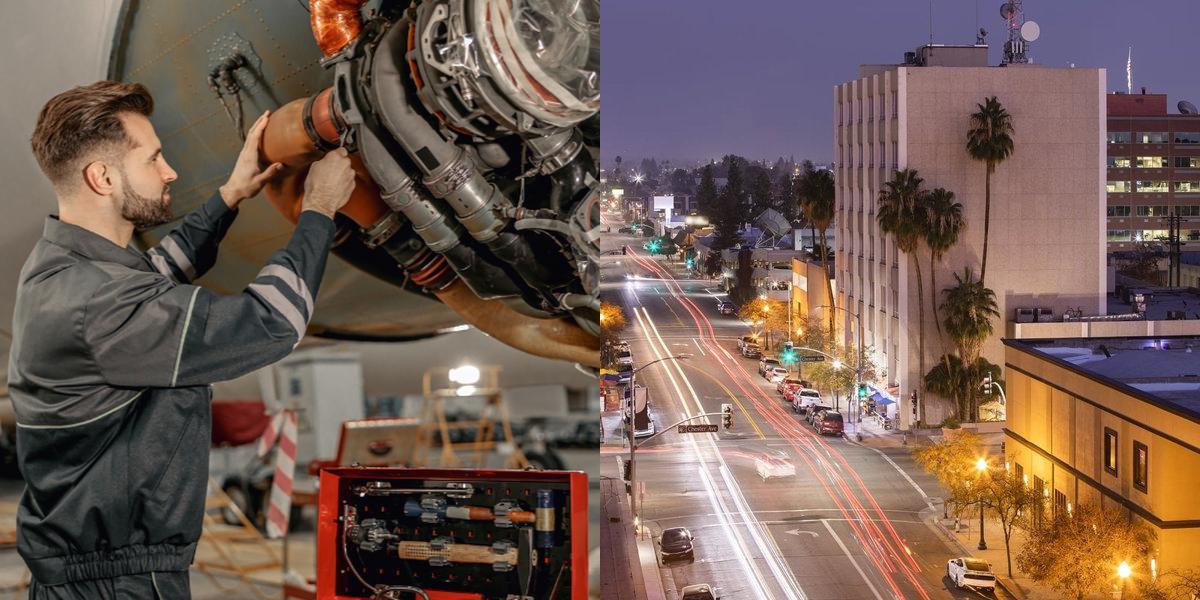How to Become an Aviation Mechanic in California

Do you dream of being the reason people can travel safely to their destinations? Are you passionate about inspecting, repairing, and maintaining aircraft to ensure they perform at their best? Consider a career as an aviation mechanic—the essential professional who ensures aircraft can safely navigate the skies and connect lives across the globe! In this blog, we will discuss the requirements, the steps to becoming an aviation mechanic, and where you can find aviation mechanic schools in California!
- Aviation mechanic is a professional responsible for inspecting, repairing, and maintaining aircraft to ensure they operate safely and efficiently.
- To become an aviation mechanic in California, you need to complete an FAA-approved training program, gain at least 1,900 hours of practical experience, and pass the FAA's oral, written, and practical exams to obtain your Airframe and Powerplant (A&P) certification.
- The length of aviation mechanic training programs typically ranges from 18 to 24 months.
Exploring a Career in Aviation Mechanic Outside California
If you're eager to launch your career as an Aviation Mechanic but are currently in a different state, don’t lose sight of your dreams. You can still find valuable opportunities to work as an Aviation Mechanic in:
If these states aren't in your vicinity, Dreambound is still here for you. You can easily explore and compare Aviation Mechanic programs by searching by zip code. Wherever you’re located, with dedication and the right resources, you can chart your course to a rewarding career in aviation. Remember, your future as an Aviation Mechanic is just a flight away!
Final Thoughts
Becoming an aviation mechanic offers a rewarding career with competitive salaries and diverse job opportunities, including aircraft maintenance technician and avionics specialist. By completing the right aviation mechanic training and certification, you’ll be well-prepared for a fulfilling future in aviation. If you’re ready to start your journey, visit Dreambound today to explore top aviation mechanic schools and take the first step toward your new career!
Looking for a better fit? These other articles could be more in line with your expectations if this one isn't precisely what you had in mind:

Vduani Martinez is a part of the Growth team at Dreambound. She creates and fixes workflows and automation to guarantee seamless operations. On top of that, she manages databases to ensure all information is up to date. Vduani is a licensed Electronics Engineer who loves coffee and is a travel enthusiast. Out of the office, she enjoys going on road trips and discovering new cafes and restaurants.



